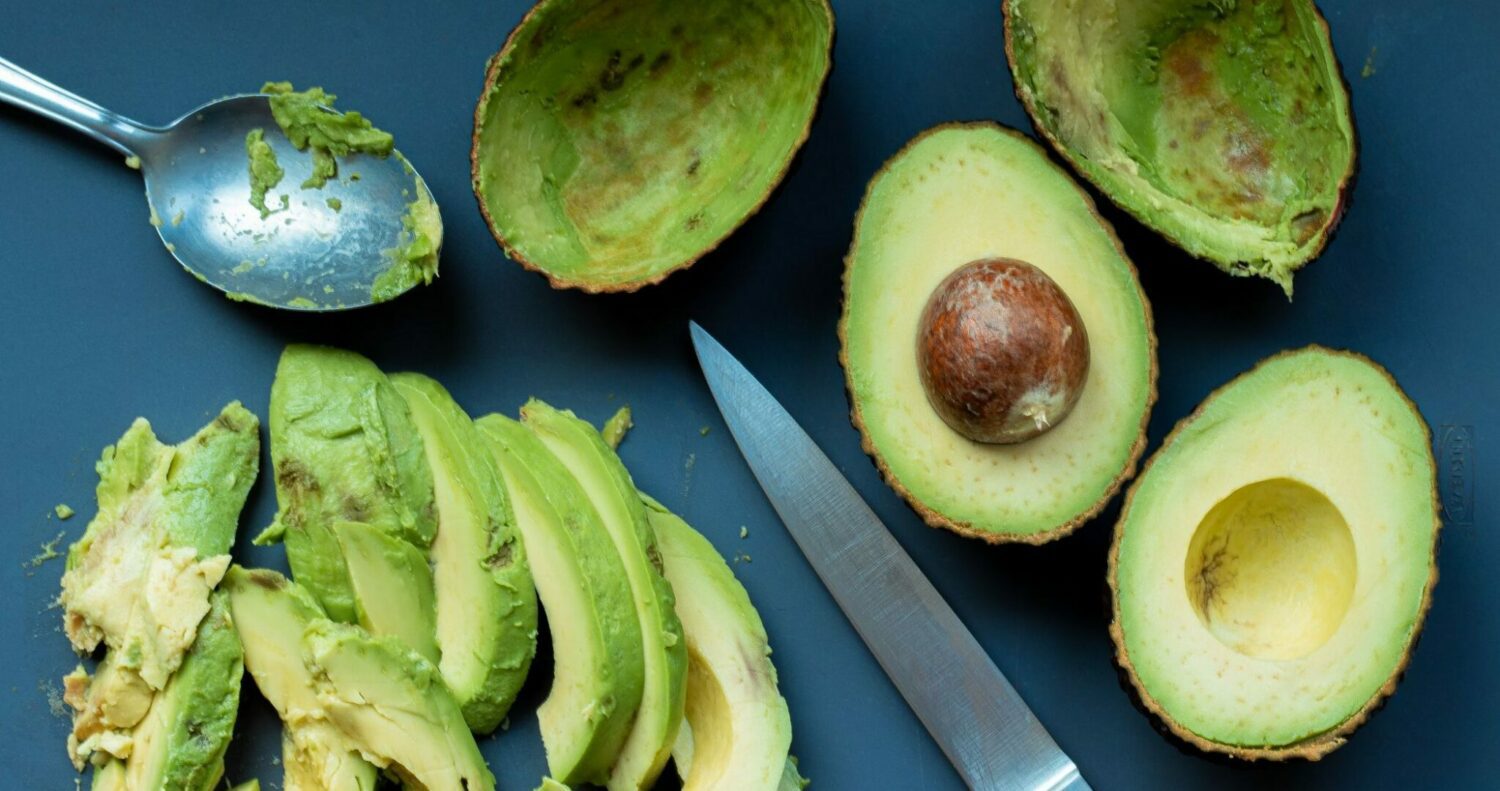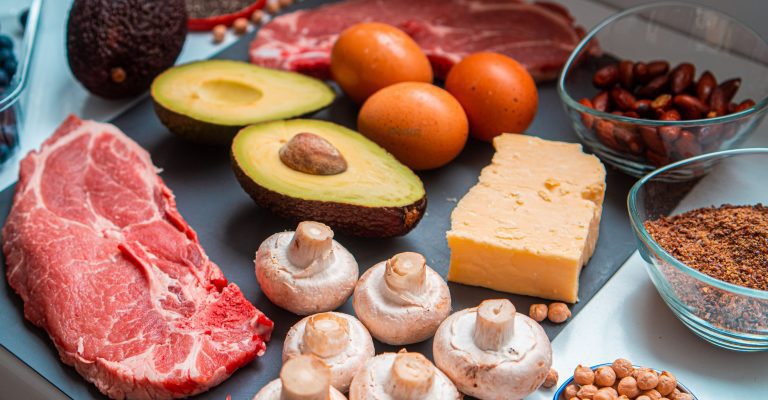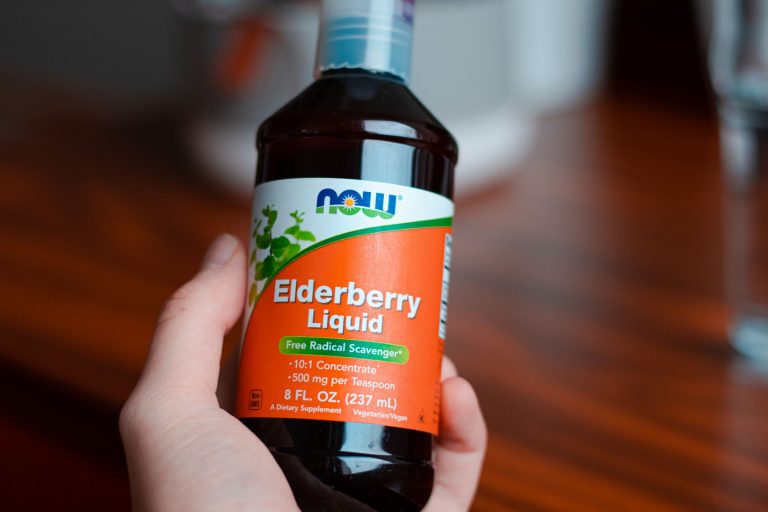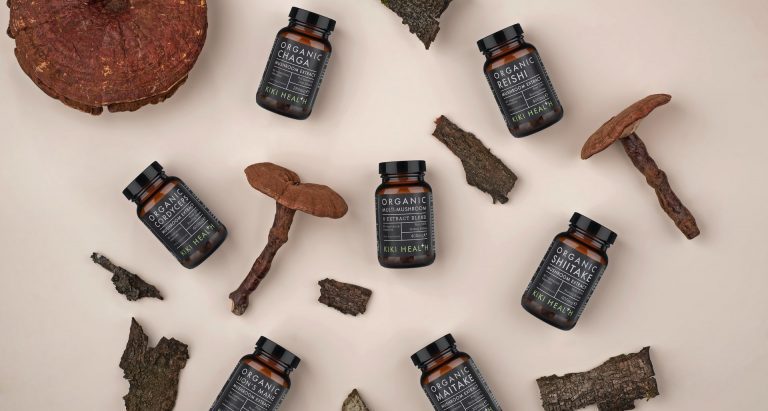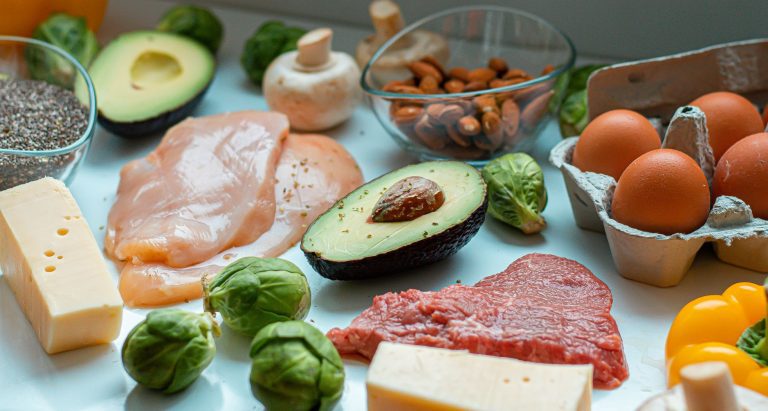Is Avocado a Superfood? 17 Benefits: Weightloss, Energy, Physical Performance, and Cognition
Avocado is one of the most popular fatty fruits on the planet. It is because of its versatility, multiple health benefits, fatty texture, and amazing taste.
Avocado
Origin & History
The fruit itself grows on the Persea americana tree which originates from Mexico, but now it is spread throughout the world. Avocado is a berry fruit with a huge seed inside. It belongs to the Lauraceae family in the Plantae kingdom.
Fun Fact
Avocado’s real name origin has an interesting history. Back in the time of Nahuatl Indian Aztecs, avocado was associated with increased sexual performance. These aphrodisiac-like effects hold a strong relationship with the origin of its name which was “ahuacatl”’ which means testicle.
The term Hass avocado refers to the fatty, dark-brown, and squishy avocados, which have the most health benefits, due to their high healthy-fats content.
One of Avocado’s superpowers is its pure nutrition and antioxidant content. Avocado is loaded with fat-soluble vitamins like vitamins C, K, and E. The power of antioxidants translates into reduced inflammation, oxidative stress, and DNA damage. Other potent antioxidant-rich (alternative) foods are Salmon, rich in Astaxanthin, Muscadine Grapes, rich in Resveratrol and Blueberries, rich in Anthocyanins and Flavonoids.
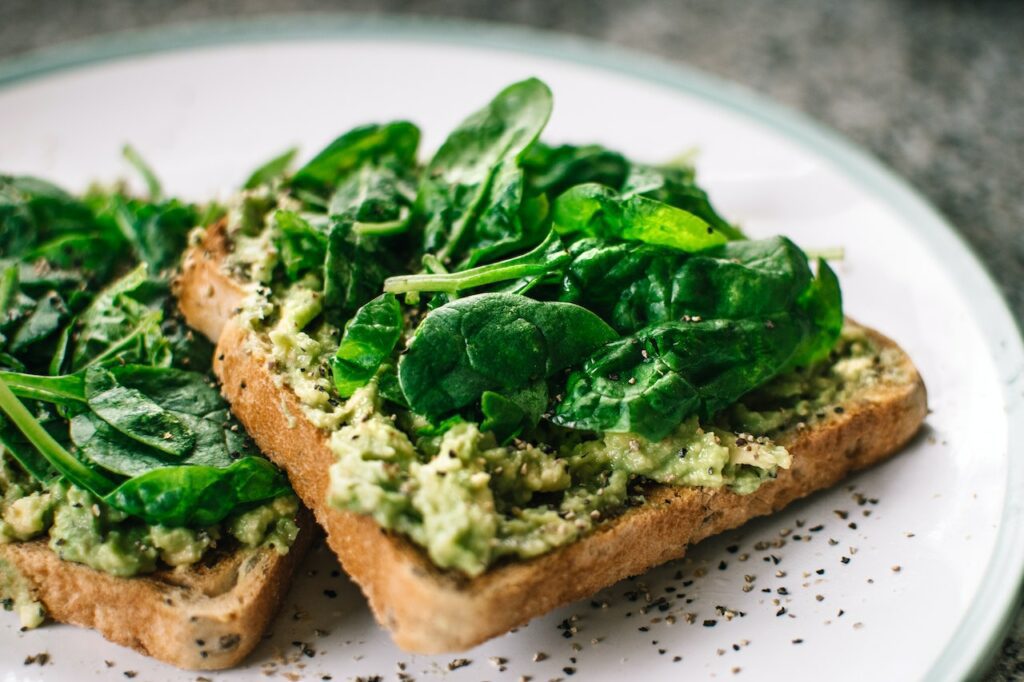
Versatility and Nutrition
Avocados are edible fruits that can and are best to be eaten raw, or uncooked. You can chop them up and add them to a salad or fruit bowl, spread them over a toast, or squish them up and make guacamole from them.
This fruit Is loaded with tones of antioxidants, essential vitamins, and minerals, phytosterols, and carotenoids which can improve your health in many different ways.
It has an insanely wide variety of benefits, because of the bioactive compounds it contains, ranging from athletic performance, anti-aging, reduced inflammation, improved digestion, and brain & bone support.
Nutritional Profile
As you already know, this fruit is all about fats. Before you get scared you should know, avocado contains mostly healthy Monounsaturated fats.
Aside from its omega 3-rich content, it is loaded with tones of bioactive compounds and essential vitamins & minerals which can provide your body with multiple benefits.
This is the nutritional profile of one raw avocado which weighs around 150 grams or 5.29 ounces:
| Macronutrients | Micronutrients |
| Calories: 240 kcal | Vitamin C: 15.0 mg (25% DV) |
| Carbohydrate: 12.8 grams | Vitamin E: 3.1 mg (16% DV) |
| Protein: 3.0 grams | Vitamin K 31.5 mcg (29% DV) |
| Total Fat: 22.0 grams | Niacin (B3): 2.6 mg (13% DV) |
| Saturated fat: 3.2 grams | Pantothenic acid (B5): 2.1mg (21% DV) |
| Monounsaturated Fat: 14.7 grams | Vitamin B6: 0.4mg (19% DV) |
| Polyunsaturated Fat: 2.7 grams | |
| Omega 3 Fatty Acids: 165 mg |
- Even though we see high amounts of omega 6 fatty acids in ratio to omega 3 (13:3) this is not detrimental because overall levels of both aren’t too high.
- Oleic acid was found to improve total cholesterol profile, reduce LDL “the bad cholesterol’ and increase HDL “the good cholesterol”. (1)
Avocado oil is rich in other Omegas, known as omega 9 Fatty acids or Oleic Acid which is a healthy fat. About 70% of avocado contains this oleic acid, which is the main compound responsible for the heart-friendly effects of Olive oil.
Health Benefits of Avocados
1. Avocado Is Highly Nutritious
Loaded with Vitamins, Minerals, Antioxidants, Phytosterols, Flavonoids, and Fatty Acids
This superfood fruit makes it on the list because of its nutrient-dense profile. Avocado is one of the richest fruits on the planet, full of nutrients and antioxidants which can provide the body with many benefits.
This fatty fruit contains good amounts of pretty important, health-supportive vitamins such as vitamin C and vitamin E which are powerful antioxidants. Avocado contains fat-soluble Vitamin K which plays a major role in calcium absorption. It is also rich in many B vitamins which are crucial to growth and optimal nerve functioning such as folate (B9) and vitamin B6.
Fun Fact
The Green hard and strong avocados are less fatty, this type grows in Florida. The squishy, soft, dark-brown avocados are filled with fats, named the Hass Avocado. Aim for the fatty version, because Avocado has many great Fatty Acids important for Heart Health.
Mineral-wise, Avocado is popular for its potassium content, which is pretty good. Comparing it to a banana, per 100 grams of avocado we get 485mg of Potassium, and in the same amount of banana, 358 mg of Potassium. (2)
Other important minerals present in avocados are Magnesium, Zinc, Copper, and Manganese. These vitamins support a healthy nervous system & muscle contractions, immune function, and cell growth & regeneration.
Avocado is not just rich in vitamins and minerals but also some specific bioactive compounds such as:
| Phytosterols | Phenolic compounds |
| Flavonoids | Carotenoids |
| Antioxidants | Diterpenoids |
| Fatty Alcohol |
- Phytosterols are plant sterols that have a similar structure to cholesterol, reducing the binding potential which can reduce cholesterol absorption. (3)
- Carotenoids like Lutein and Zeaxanthin are also present in Avocado. They may improve vision and protect the eyes, due to their high anti-inflammatory effects. Lutein can also improve cognitive function and protect the brain. (4)
Potential effects of Phytosterols and Flavonoids are: improving brain function and reducing cholesterol levels, which cuts the risk of coronary heart disease.
Biohack
Avocado’s nutrient-dense profile is the main reason why it makes it on the superfood list. Loaded with tones of vitamins, healthy fats, minerals, antioxidants, and special bioactive compounds it can provide multiple health-related benefits.
2. Supports Kidney Function, May Improve Fluid Balance
The ratio between Potassium and Sodium is crucial in the body. They can influence kidney function, fluid balance, and bone metabolism, and play a major role in energy production.
Fluid balance is the ratio between water excretion and retention. An optimal balance between sodium and potassium is needed for that purpose. Potassium is found in the Intracellular and sodium is in the extracellular space.
We need a balance between these two electrolytes for our muscles to function properly. For muscle contraction, the molecular pump pulls potassium into the cells and pushes sodium out which enables nerve impulse transmission.
Fun Fact
Back in history, people had an abundance of Potassium in their Paleolithic diet, around 10,000 mg of potassium a day. Now we have low Potassium but high Sodium levels in our modern diet, so eating avocado or other potassium-rich foods (Paleo-dietitians are familiar with this) can be beneficial for us.
Fluid Balance is important for the regulation of blood pressure and the optimal function of the kidneys. If you think of it, high blood pressure is associated with excessive salt/sodium intake. (5) Reducing it can lower blood pressure, but increasing potassium can have the same effect as well.
Keeping these electrolytes in check is important since too much potassium can cause frequent liquid excretion and too much sodium can increase water retention. Several factors such as blood pH, hormones, activity level, and nutrition can affect the ratio of sodium and potassium in the blood.
Precaution: If you have kidney-related problems like chronic kidney disease (CKD) or hyperkalemia, which is elevated potassium levels in the blood then your kidneys can not remove the excess potassium you have, so it builds up in your blood. For any serious medical condition like this, make sure you consult with your doctor before eating any potassium-rich foods.
3. May Assist in Lowering Blood pressure
Potassium also functions in blood pressure control. Excessive sodium or salt levels are associated with increased blood pressure and hypertension.
Diets that are too high in sodium need potassium-rich foods to balance the ratio between these electrolytes and lower blood pressure, due to the excretion of the fluid.
Higher levels of potassium will increase the quantity of sodium released through your sweat and urine. Potassium recommendations for the average adult are set at 4,700 mg per day.
- Both potassium chloride and potassium citrate have been shown to reduce blood pressure in 14 hypersensitive adults. (6)
- Replacement of NaCl salt with potassium enriched version – KCl salt-reduced mortality rate caused by cardiovascular disease by 41% in 31 months. (7)
Other potassium-rich alternatives to avocados are bananas, sweet potato, kidney beans, soybeans, lentils, spinach, peas, zucchini, eggplant, prune, apricot, and grapefruit juice.
summary
Potassium-rich foods, such as avocado can reduce blood pressure, control fluid balance, and balance a high-sodium diet, due to the effect of the opposite electrolyte – potassium.
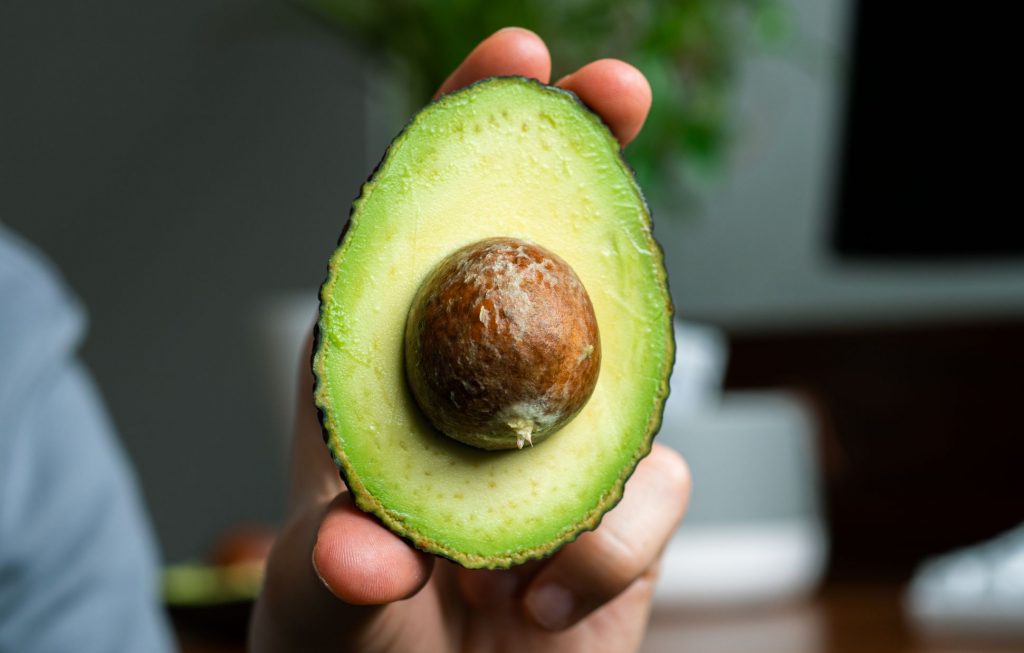
4. May Support Blood Clotting
Avocado is rich in Vitamin K, which plays a major role in blood clotting.
Healthy platelet function is important in the coagulation process, to prevent blood loss after a cut, of similar nature. These chemical reactions involved in the pathway require sufficient vitamin K.
One whole avocado contains around 40 micrograms of vitamin K which is 35% of the daily recommendation for Vitamin K. Of course, how big the avocado is, its type of it, your age, and fitness level will all play a factor in the quantity of vitamin K of you will get and how much is optimal for you, these are just guidelines.
Important blood coagulation factors (Gla-proteins) are formed in the liver, but vitamin K is essential for its synthesis. Vitamin K deficiency is a life-threatening condition in acute injury that may cause bleeding.
Prolonged vitamin K deficiency harms bone health and may increase risk factors for diseases such as cancer, osteoporosis, and atherosclerosis. (8)
Heart-Healthy Nutrients
Avocado is the fattiest fruit out of all, loaded with monounsaturated fats. Avocado has around 77% of its calories as fat, but a healthy version of fat.
- Oleic acid and omega 3 found in olive oil and avocado play a major role in cholesterol regulation, insulin resistance, and blood pressure regulation. (9)(10)
- Switching from saturated to monounsaturated fats in high-fat diets may improve heart health
- Monounsaturated fats (mainly present in avocado) were efficient in reducing the inflammatory response, preservation of AMPK activity, and improving insulin sensitivity. (11)
Adding this fatty fruit into your diet can be a heart-healthy alternative to other fatty foods, especially a healthy choice to switch from snacks full of saturated fat.
Avocado is also rich in Folate, a vitamin B9 that plays a major role in the blood defense system. The group fed with a folate-deficient diet in this study has shown lower levels of T-lymphocytes, B-lymphocytes, and NK cells (natural killer cells). (12)
summary
Avocado contains vitamin K which plays a major role in coagulation reactions and bone metabolism. Avocado also contains Folate (vitamin B9) which is important for blood immune defense development like NK cells, T lymphocytes, and B lymphocytes.
5. May Improve cholesterol profile, reduce LDL, and increase HDL
When it comes to cholesterol many people have bad ideas about it. Cholesterol is nothing you should fear, it is essential. It is a type of fat in your blood produced by your liver, present in many animal products.
Cholesterol has many functions in your body like building hormones and fat-soluble vitamins while being an integral part of your cell membranes.
The problem with cholesterol is when we have too much oxidized LDL, low-density lipoprotein, known as “the bad cholesterol” because this type is associated with an increased risk for cardiovascular coronary diseases due to its artery-clogging effects.
Avocado is a great fatty fruit to improve your levels of HDL cholesterol and reduce oxidized LDL, thus improving your overall cholesterol profile.
- Avocado may also help lower LDL in a moderate-fat, cholesterol-lowering diet – as the avocado group performed better. (14)
This study showed significant improvement in blood markers by adding monounsaturated fatty acid-rich avocado to the participant’s diet. It suggests that high Monounsaturated fat avocado-enriched diet can improve lipid profile in healthy and hypercholesterolemic adults. (13)
- Decreased serum total cholesterol by 17%
- Decreased LDL-cholesterol by 22%
- Decreased triglycerides by 22%
- Increased HDL-cholesterol by 11%
Improves Absorption of Fat-Soluble Vitamins
Adding Avocado or Avocado Oil can enhance nutrient absorption. Fat-soluble vitamins need fats to be absorbed properly. These vitamins are Vitamin E, D, A, and K. Healthy fats are the best option when it comes to improving nutrient absorption.
In this study, it was shown that adding 150 grams of avocado or 24 g of avocado oil added to salad improved the absorption of carotenoids like lycopene, b-carotene, and a-carotene. (15)
Besides avocado providing you with many nutrients, it can also enhance the absorption of carotenoids and fat-soluble vitamins, which will give you an even higher nutrient boost.
Biohack
Adding avocado or any source of healthy fats can be beneficial to absorb many of the carotenoids found in foods such as apricots, carrots, grapefruit, and oranges. If you can choose when to eat fruits, eat them after a meal, or along with the fatty source.
6. Aids in Anti-Aging & Skin Regeneration
The most important factor for anti-aging is the antioxidant power of this superfood. It turns out that Avocado has a skin-supportive nutrition profile due to the key ingredients it contains, which can directly affect how your skin looks.
Let’s take a look. Avocado is packed with one of the most potent essential vitamin antioxidants:
- Vitamin C
- Vitamin K
- Vitamin E
These vitamins have many radical scavenging, anti-inflammatory effects that can fight oxidation and give your skin a smoother, clearer, and younger look.
- Topical application of Vitamin E and C, both of which are present in avocado, can improve skin elasticity, radiance, and color, plus have an anti-wrinkle effect. (16)
- Lycopene (found in avocado) is a powerful antioxidant that can help in skin regeneration and reduce UV-induced sun damage to the skin. It protects the skin from clogged pores and breakouts too. (17)
- Beta-carotene, another avocado component improved skin attractiveness. It didn’t affect skin health but improved skin-color pigmentation and attractiveness. (18)
Per one whole Avocado which weighs around 150 grams, it provides 25% DV or 15 milligrams of vitamin C. Vitamin C can accelerate skin regeneration by acting on collagen protein synthesis.
It was found that vitamin C can have many photo-protective, anti-aging, and neocollagenesis properties. Being one of the most potent antioxidants in the skin, vitamin C can improve how your skin looks and feels. (19) It improves skin hydration, increases type I collagen, and protects the skin from photodamage. (20)
7. Could Improve Bone Strength and Health
Avocado is loaded with many flavonoids and phytochemicals which can improve bone health by reducing inflammation.
It is important to note that bone diseases like osteoarthritis can occur because of aging, these are mostly degenerative diseases mainly because of bone and joint overuse. The other type originates from an inflammation, an example of this is synovitis. (21)
Avocado can definitely provide you with essential nutrients like vitamin D, K, and calcium which play a major role in bone metabolism and strength. On the other side omega-3, Fatty acids in avocado can exert many anti-inflammatory effects, helping with joint inflammation.
Optimal levels of Calcium and Vitamin D are important for healthy and strong bones. They play a major role in bone formation, bone metabolism, and bone development. Vitamin D or Calcium deficiency can lead to bone-related diseases and decreased bone mineral density. (22)
Avocado also shows some bone protective effects such as reduced bone catabolism, due to its ability to inhibit catabolic enzymes and stimulate anabolic pathways. This promotes cartilage repair and stimulates aggrecan and collagen synthesis via the inhibition of inflammatory cytokines. (23)
summary
For its anti-aging and bone-strengthening properties, avocado would have to thank many of its fat-soluble vitamins like Vitamin C, E, K, D, and Omega 3 Fatty acids. Avocado can support healthy aging, improve skin elasticity, boost collagen production, and support healthy bone development.

8. Improves Brain Performance & Cognition
When it comes to brain health, nutrition-wise, we can provide the brain with healthy nutrients, give it the energy to work and reduce neural inflammation. This can potentially slow down brain aging and improve cognitive performance.
- Avocado is full of healthy monounsaturated fats which can be great for the brain. We are not talking just ketones here, we are talking about Lipids.
- Lipids are an integral part of your brain and have a structural and functional role In neurons. (24)
Another important factor in brain health, cognition, and mood is the gut-brain barrier. How healthy your microbiota is, has a significant impact on the brain’s performance. Avocado is one of these fiber-rich, fatty foods which can promote healthy digestion.
Lutein is a carotenoid present in Avocado that can support healthy brain function and is associated with improved cognition, elevated mood, and memory.
- It acts as a powerful antioxidant in the brain and the eye, reducing inflammation. This may potentially improve brain function and performance. (25)
- Omega 3 fatty acids were studied for their effects on brain activation and cognition, they found out that EPA and DHA improved cognitive performance, in which EPA was more effective. (26)
- Omega-3 fatty acids have also been shown to reduce inflammation in the brain, which can help with cognitive decline and neurodegenerative diseases. (27)
9. Improves Vision, Promotes Eye Health
Avocado contains two powerful carotenoids as Lutein and Zeaxanthin, which possesses many anti-inflammatory effects. They’re also found in dark green leafy vegetables, egg yolk, and human milk and have high bioavailability from these sources.
Lutein and Zeaxanthin play important role in vision, and ocular development and protects the eye from age-related macular degeneration. (28)
- Lutein is a carotenoid, which acts as a strong antioxidant in the body. Lutein was shown to protect from phototoxic damage to the photoreceptor cell by its ability to filter blue light. (29)
- These carotenoids are found within the retina, which is metabolically active tissue in the eye. Its main function is to receive the light focused by the lens, convert it into neural signals, and to send them to the brain for visual recognition. Both of these carotenoids may support retinal function and lower the risk of age-related macular degeneration. (30)
summary
The bioactive compounds Lutein and Zeaxanthin can protect the eye and improve brain function because. Omega 3 Fatty acids can reduce inflammation in the brain and potentially prevent age-related cognitive decline.
10. Weight-loss management and faster metabolism
Avocado is also full of monounsaturated fats and fiber which will make you feel fuller longer and may aid in improving digestion.
It is high in oleic acid which has many health benefits. One of the known effects of oleic acid is its ability to decrease belly fat. In this study people who consume around 3 tablespoons of oil rich in oleic acid reduced their belly fat by 1.6 %. (31)
Another effect of oleic acid that is associated with weight loss is its ability to speed up the metabolism.
Oleic acid was also found to promote satiety in participants who ate oleic fat-enriched meals after fasting. Meal reduces the desire to eat in all eight participants. Oleic acid decreased food intake while Linoleic acid meals increased ghrelin levels, which is the hunger hormone and can increase the desire for eating. (32)
Extra Research: National Health and Nutrition Examination Survey
Results from the National Health and Nutrition Examination Survey support Avocado’s health benefits on weight management. This enormous survey which included 17,567 USA adults, showed potential in terms of weight management and metabolic syndrome risk effects from Avocado. It turns out that avocado consumers are also healthier in terms of sugar intake (lower intake) and nutrient intake (higher-quality, nutrient-dense foods). The Avocado eating group showed lower BMI, body weight, and waist circumference and also had higher HDL (“the good cholesterol”) scores. Avocado consumers had a lower risk of developing metabolic syndrome. (33)
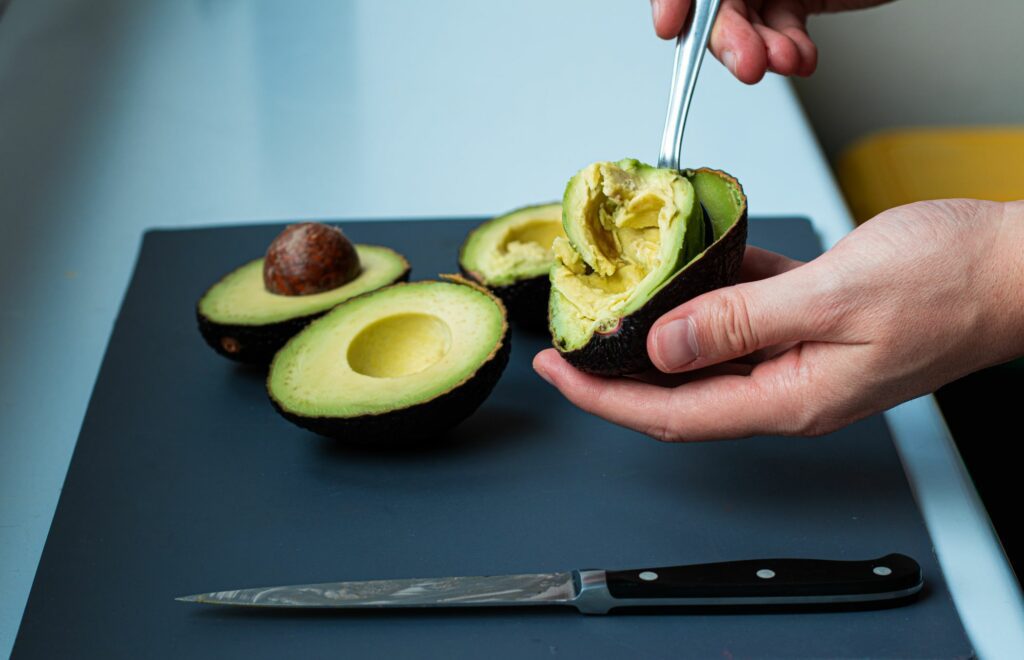
11. Helps with Diabetes Management
Diabetes is associated with many coronary heart diseases. The problem with diabetes is high blood sugar levels and an insufficient amount of insulin to transport that sugar. This increases the risk of clogged arteries, neuropathy, and organ function impairment.
A ketogenic diet that is high in fats may improve lipid metabolism, restore insulin sensitivity, and enhance energy production.
Many studies on mice and rice following a high-fat ketogenic diet have shown controversial data. The ketogenic diet may lead to weight loss but is probably not the best long-term diet, due to acidity and low energy.
- A very low-calorie ketogenic diet, however, was shown efficient for reducing weight in obese people and had no significant effects on acidity (blood pH levels, anion gap, and plasma bicarbonate). (34)
- In elite athletes, it was shown that a chronic ketogenic low-carbohydrate high-fat diet had minimal effects on acid-base status, which may be due to the differences in energy metabolism efficiency. (35)
The goal in obese or diabetic people is to use fat for fuel as the main energy source, instead of increasing carbohydrate intake and raising blood sugar.
Fats in Avocado – Weight Loss and Diabetes
Most fats in the ketogenic diet should come from healthy sources such as eggs, salmon, cottage cheese, nuts, seeds, olive and coconut oil, and of course, avocados.
Reasons why avocado can be a good option for weight loss and diabetes management:
- High in fiber, making you feel fuller longer, promotes satiety
- Improves Insulin sensitivity, increases GLP-1
- Provides healthy nutrients and Monounsaturated Fatty Acids
- Reduces fasting glucose levels, doesn’t cause a blood sugar spike
- Increases HDL cholesterol
Comparing three diets: carbohydrate-rich (CHO) diet, Monounsaturated fat-enriched (MUFA) diet and Saturated fat-enriched diet (SAT) – MUFA diet reduced serum and fasting glucose levels and improved insulin sensitivity. It also increased HDL and improved proinsulin levels in insulin-resistant subjects. (36)
summary
This keto-friendly fatty fruit can enhance lipid and carbohydrate metabolism. It may be helpful to eat a Ketogenic diet for the short term as a way to restore how your body responds to food, however, caution of acidity must be taken into consideration. Monounsaturated fats can improve many health markers related to insulin resistance, such as insulin sensitivity, glucose levels, and HDL cholesterol.
12. Aids in Liver Protection
Because of the nutrients, it contains, avocado might help with liver detox and liver protection.
- Lots of antioxidants like vitamin C and omega-3 fatty acids may reduce inflammation in the liver and potentially prevent any liver-associated problems. (37)
- Vitamin E was shown to reduce liver enzymes such as AST, ALT, and ALP by -19.43U/L, -28.91 U/L, and -10.39 U/L respectively. (38)
- Omega 3 fatty acids reduced liver enzymes like AST, ALT, and GGT which are associated with liver damage. All that, plus it increased HDL levels. (40)
Omega 3 fatty acids found in avocados have many anti-inflammatory properties. Reducing inflammation and prevention of fat accumulation in the liver is crucial to support its function.
One whole avocado (150 grams) contains around 40 milligrams of Glutathione, which makes avocado one of the richest glutathione-containing foods.
L-glutathione is known as a “detox master” or “master antioxidant” for a reason. It is a powerful antioxidant found in plants and fungi which can reduce cellular damage. It has anti-inflammatory properties, and reduces oxidative stress damage and cell damage in alcoholic and non-alcoholic fatty liver diseases. (41)
Extra Research: Non-Alcoholic Fatty Liver disease (NAFLD) Protection from AST, ALT
- Changing lifestyle habits with additional glutathione treatment improved liver enzymes in twenty-nine participants with Non-Alcoholic Fatty Liver disease (NAFLD). For 4 months subjects received 300 mg/day of Glutathione and improved their physical activity level. There was a significant 12.9% reduction in ALT levels (liver enzyme associated with liver damage, acute hepatitis, or viral hepatitis infection) and a reduction in triglycerides and ferritin levels. (42)
- Out of 22 different fruits that were examined for protecting the liver from D-galactosamine, which is a powerful liver toxin, avocados showed the best results. Five bioactive avocado compounds protected the liver and alter changes in aminotransferase (ALT) and aspartate aminotransferase (AST). (39)
Biohack
To increase Glutathione levels in the body naturally, you can: add milk thistle or turmeric to your diet, eat more vegetables, add selenium-rich or sulfur-rich foods and increase citrus fruits (vitamin C) uptake.
13. Could Enhance Athletic Performance
Avocado is one of the go-to’s for any athlete. It is loaded with healthy fats that support heart health and on top of that, they are rich in antioxidants like vitamin C, vitamin E, and vitamin K.
Omega 3’s have an anti-inflammatory effect too which is important for any athlete. (43)
Training on a daily basis increases metabolism and the body needs to be fueled the right way if we want to keep up with the performance.
Avocado is a great high-calorie, raw, and organic option for any athlete. It is easy to incorporate it into your diet in anything. It can be eaten raw, put on top of salads, sandwiches, pasta, and risotto.
It also contains the mineral Potassium which is crucial for athletic performance, to keep the balance between Na and K. It aids in muscle contraction and relaxation, prevents cramping, and plays a major role in water excretion and blood pressure regulation. (44)
As an athlete, you must provide healthy bone-supportive minerals to save your bones, joints, and cartilage. Avocado contains a unique set of components such as vitamins C, E, K, and calcium which all have a role in bone metabolism, bone development, and mineral density and may prevent bone loss. (45) (46)
Biohack
It is important to note that for calcium to work its magic on the bones, it needs to have other vitamins such as vitamin D and K that play a major role in bone metabolism and calcium absorption. Therefore, take some sun and vitamin D-rich foods along with avocado, your bones will be thankful in the long run.
14. It May Increases Energy Levels
Avocado has many vitamins that have a key role in carbohydrate, fats, and protein metabolism. These vitamins are responsible for the conversion of food to energy and for creating more ATP molecules. More ATP means more energy and this is beneficial not just in sports but in everyday life.
The magic behind this is avocado’s vitamin B content. In one medium avocado, which weighs around 150 grams there is: (47)
- Riboflavin (B1): 0.2 mg (11% DV)
- Niacin (B3): 2.6 mg (13% DV)
- Vitamin B6: 0.4mg (19% DV)
- Folate (B9): 122 mcg (30% DV)
These vitamins are crucial for your body’s energy-producing processes.
Niacin or Vitamin B3 plays a major role in the conversion of food to energy because it acts as a coenzyme in many chemicals, an energy-transferring reaction in fat and glucose metabolism. The active form of Niacin, NAD, and NADP are crucial enzymes for energy production. (48)
Another important vitamin for sugar metabolism is B6. Avocado is rich in B6 which is needed for the glycogen breakdown process, which gives you the energy that is important for the brain and muscles, especially during physical activity.
summary
Avocado is filled with many important B vitamins which can increase energy because they act as a coenzyme in energy production. Avocado is filled with antioxidant vitamins and fatty acids that can reduce inflammation and improve athletic performance.
15. Has Potent Anti-inflammatory properties
Chronic inflammation is associated with the development of many coronary diseases. (49) Inflammation by itself isn’t bad, it triggers regeneration, but it’s detrimental when it’s chronic.
That’s where antioxidants come to play, as they reduce the oxidative stress on our cells and DNA. Oxidative stress occurs when your body is producing free radicals as a result of the metabolic processes – causing cellular and DNA damage. (50)
Avocado is one of the most potent antioxidant fatty fruit out there. It contains many vitamins that possess these antioxidant-like effects such as Vitamin C, Vitamin E, and Vitamin K. It’s also rich in phytosterols and monounsaturated fats.
Omega 3s may be useful as a potential agent in treating inflammation-originated diseases, due to its therapeutic effects on reducing inflammation and oxidative stress. Potential mechanisms of these functions are changes in membrane fluidity, cell signaling, altered gene expression, and pattern in lipid mediator production. (51)
Versatility: Suitable for various diets
Avocado is one of the most popular fruits on the planet, not just because of its health benefits but also because of its taste and diet suitability.
Avocado can be a part of:
| Vegan diet | Lacto-ovo vegetarian diet |
| Ketogenic diet | Pescatarian diet |
| Paleo Die | LCHF diet |
| The Zone Diet | Omnivore diet |
| Vegetarian diet | Atkins diet |
Avocado is a versatile fruit because of its ability to be incorporated into any kind of meal. It can be cooked, but eaten raw is the best option to get all the benefits from it.
Avocado Meal Ideas
Here are some ways to add avocado to your Diet Regime:
| Breakfast | Avocado toast with tomato and cheese |
| Dinner | Avocado-enriched pasta with broccoli and cheese |
| Salad | Avocado enriched greens salad + tomatoes |
| Dinner | Potatoes, mushroom, and spinach cooked in avocado oil |
| Snack | Avocado addition to fruit salad and nuts |
| Breakfast | Avocado & cheese Keto Omelette |
| Lunch | Avocado topping on chicken & rice |
| Lunch | Tortilla with Chicken, BBQ and Avocado Guacamole |
| Dinner | Shrimps & Avocado with Parsley and garlic topping |
| Dessert | Keto brownies (eggs, avocado, vanilla extract, protein powder, flaxseed oil) |
Food is our main fuel, make sure you fuel yourself with healthy, organic, and clean superfoods. Spread some avocado on your toast, chop it up in your veggie salad or fruit bowl or cook with its oil. Enjoy!
conclusion
Avocado is one of the healthiest fruits on the planet. Loaded with tones of antioxidants, vitamins, minerals, and bioactive compounds it provides multiple Health-related benefits ranging from athletic performance, cognition, and heart health to anti-aging and Digestion supportive properties.
Frequently Asked Questions
Is avocado a superfood?
Yes, avocados are one of the most popular, in fact symbolic food for healthy lifestyle. The reason behind it lies in its high omega 3 and omega 9 FAs and healthy fats, but also its overall nutrient-dense profile rich in vitamins and minerals like potassium, vitamin C, E, K and B vitamins. Avocado also contains many antioxidants, phytosterols, flavonoids, with powerful anti-inflammatory properties.
What is the best way to eat avocado?
Avocado is rarely cooked. The best way to eat avocado is raw. It offers great palatability, due to its fatty content. It’s best added in salads, shakes, toast, because it makes everything much creamier. Goes great with pasta, seafood, tortilla, toast and salad.
What is the nutritional profile of avocado?
Macronutrient wise, one raw avocado (150 grams) offers 240 kcal, 12.8 grams of carbs, 3 grams of protein and 22 grams of fat.
Micronutrient wise, avocado is rich in oleic acid, omega 3 and 9 Fatty acids, vitamin C, vitamin K, vitamin E, Niacin, vitamin B5 and B6.
Green hard avocados vs. brown and soft, which ones are better?
It seems that there are many different varieties of avocado, which include lula, hass, gween, reed, maluma, choquette, etc. While these fancy names may not mean much, avocados are growing in different places under different conditions, hence why there is an obvious difference between the types. For easier understanding, we’ll discuss about green hard avocados and soft, brown ones. The green hard avocados will last longer, but the soft ones are more tasty, practical and usually have higher healthy fat content. While picking one is up to you, I always prefer the brown ones.

